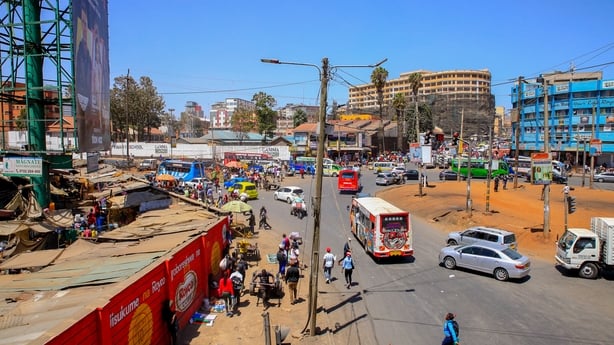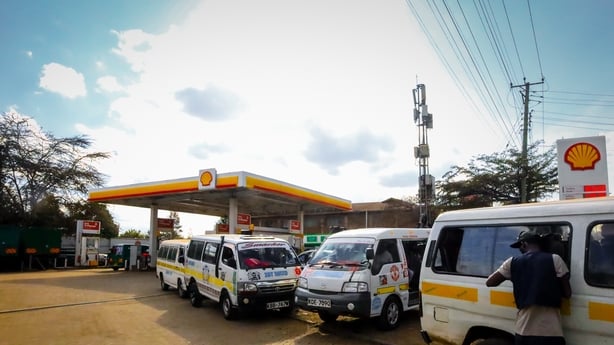Africa has acutely felt the effects of the war in Ukraine, not least because it heavily relies on grain imports from Russia and Ukraine.
A year in the war, there has been no letup.
Every so often, Roselyn Bukala, 54, stops to get some shade under whatever tree she can find. Her journey to work usually involves a two-hour trek under the increasingly hot sun in Nairobi, Kenya.
Ms Bukala, who is employed as a maid, would prefer to take a local bus, known as a matatu.
But the war in Ukraine has made things a lot more expensive.
Higher fuel costs have forced the matatu drivers to increase their prices and because Kenya imports almost 90% of its wheat from Russia and Ukraine, the cost of food has risen significantly in the country.
"I can either pay for the matatu or food for my children," Ms Bukala, who relies on a salary of just €100 a month, said.
She is one of millions of Africans who are struggling to feed their families.
Many countries in the continent rely heavily on crops and oil from Russian and Ukraine. The war has disrupted the supply chains of various commodities, including wheat, sunflower oil and crude oil.

This is particularly felt by lower-income workers, like Josphat Kanini, 28, who runs a small Kibanda, or roadside shack, where he sells traditional foods to labourers and office workers in Nairobi.
"I have had to increase my prices because the cost of everything has gone up," Mr Kanini said.
"A lot of my customers cannot afford it, but it is the only thing we can do so that we do not get hurt by the situation."
Mr Kanini said that, while he has lost a lot of money, things were a lot harder for his family back home in the village.
"People are hungry. There is no food. They are struggling to grow food because there is no rain and the sun is burning much hotter than usual. People are dying."
Irishman Stephen Jackson, the UN's resident coordinator in Kenya, described the war as just the latest in a series of global factors that have caused a "perfect storm".
There was the Covid-19 pandemic, the climate crisis, and the Ukraine conflict - what he refers to as the three Cs.
"Already in 2021, the climate crisis was beginning with a drought emergency across the Horn of Africa, Ethiopia, Somalia, Djibouti, Eritrea," he said.
"Roll the tape forward to 2023, we’ve had five failed rainy seasons in a row and we’re about to go into our sixth. We’ve never had that in 40 years."

Kenya currently imports 67% of its wheat from Russia, and 22% from Ukraine. Mr Jackson added that the loss of this import, combined with the drought, has resulted in the current crisis.
In addition to food insecurity for millions, the fuel shortage combined with increased costs of public transport has meant that many have not been able to travel to work.
For the matatu drivers in Kenya, increasing the costs of the rides was a necessity after fuel shortages made it difficult to make as many rounds, meaning a loss of income.
Macharia, 33, has worked as a matatu conductor for 10 years. However, the last year has made things exceedingly difficult, with the cost of fuel rising an all-time high.
"Last year, we were queuing for fuel for many hours. Sometimes, we were not able to get any, so we did not make any money," he said.
Despite its multiple challenges, this geopolitical crisis can be viewed as a window of opportunity for African countries to reduce their reliance on food imports.
For Mr Jackson, the war in Ukraine has raised existential questions about our globally interdependent world.
"Historically, we haven't grown wheat here. As you know, Kenya grows a lot of maize, grows a lot of vegetables, raises a lot of livestock, produces a lot of coffee and tea.
"Wheat has never really been part of the mix and I think there is a longer term question about that."








